Covid, Brexit, labour shortages – plcs have had plenty to contend with. So how have stocks fared amid the turmoil?
If the never-ending misery of Covid didn’t make life difficult enough for food and drink retailers and suppliers in 2021, there was added mass supply disruption, crippling labour shortages and soaring inflation to contend with as the year wore on.
Although it may seem hard to recall, the picture wasn’t quite so gloomy in the summer, as Coronavirus restrictions ended and life returned to some form of normality for many, boosting the out-of-home market.
There were happy reversals for the likes of Greggs, soft drink suppliers such as Coke and Britvic, the big brewers including Heineken and Carlsberg, and drinks giant Diageo, which in November set out its stall to capture a bigger slug of the market, aiming to move from a 4% share to 6% by 2030.
B2B supplier Treatt, which makes extracts and ingredients for the beverage industry, was another big beneficiary of the return of the out-of-home drinks market, with the stock fizzing more than 55% higher.
Peel Hunt head of research Charles Hall says the hard yards put in by the group over the past five years (“capacity investment, sourcing capability and investment in people”) started to pay off.
“Treatt’s credibility in the industry is rising significantly,” he adds. “You can see that in terms of win rate of new products, strong sales growth and now the margin performance is really starting to come through.”
Hall believes bigger things are expected from Treatt, which has just moved into a new Bury St Edmunds facility, with efficiencies to kick in, capacity set to expand and more new business to win.
“The exciting thing is this is just the start.”
Convenience groups Greencore and Bakkavor also took part in the rally – to differing degrees.
Sandwich maker Greencore was up 17% in 2021, but a peek back to May saw the group up as much as 55%, before sentiment soured when interim results revealed much more work was needed to recover from the Covid-induced shock of lockdowns. Revenues sank 19% in the six months ended 26 March 2021, and profits of £27m a year earlier turned to losses of £8m.
The double shock in November of the emergence of the Omicron variant and long-time CEO Patrick Coveney jumping ship for SSP Group also proved an anchor for the shares.
Greencore wasn’t the only business to have its recovery nipped in the bud when Omicron put the fear back into investors, with SSP, where Coveney is of course now bound from this March, and WH Smith both suffering.
Prepared foods group Bakkavor, by contrast, has moved steadily forwards and remains more than 50% higher.
Peel Hunt head of research Charles Hall points out Bakkavor is not quite as reliant on the food-to-go market as Greencore. “Bakkavor also had the added advantage of its US exposure,” he adds.
“The market for freshly prepared food is increasing quite rapidly over there and Bakkavor is the leading player in that market. A year ago, investors were questioning the US investment and asking when it would show it could deliver a decent margin and make a good return on capital. Now, it is a matter of how meaningful can North America be in the overall mix of the business.”
Rise of the retailers
It wasn’t just suppliers celebrating rises in value in 2021 – the retailers also had their moment in the sun.
Despite sales swelling in 2020 thanks to a year of lockdowns, investors remained unimpressed. It left these cash-generative behemoths looking appetisingly undervalued – and private equity saw what the markets missed.
Morrisons went the way of Asda, with a bidding war between Fortress Investment Group and Terry Leahy’s gang at Clayton, Dubilier & Rice driving a 61% premium for the stock.
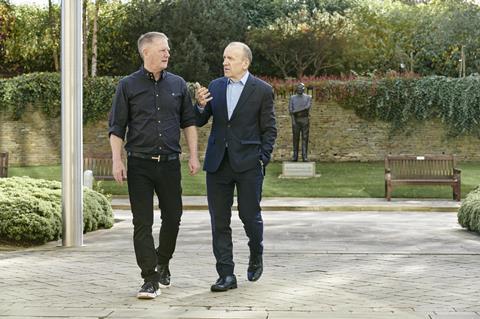
Sainsbury’s was also swept up in the M&A speculation, with the shares hitting an almost three-year high in August as rumours circulated that Apollo Global Management, still licking its wounds from missing out on Asda, was about to swoop.
HSBC retail analyst Andrew Porteous says the grocers have been run very differently in recent years compared to the past decade.
“There is much more capital discipline; more of a focus on cash,” he adds. “It is something the market has been very slow to realise and that left them vulnerable to private interest – and we’ve seen that come to fruition.”
Tesco was less affected by the M&A rumours – given its market cap of £22bn, plus a hefty premium on top, would make a deal potentially trickier to pull off – making its share performance all the more impressive.
Discounting the fall in value that followed the return of £5bn to shareholders by way of a special dividend in February thanks to the exit from Asia, the supermarket’s shares leapt 22% in 2021 as it continued to trade strongly.
“Tesco has come increasingly good under Ken,” says Porteous. “He has had an immediate impact, building on the work done by Dave Lewis in rebuilding the operating model.
“The longer the year has gone on, the stronger Tesco has gotten. If you look at the data, it is absolutely flying. They are running a really tight ship with a lot of momentum.”
After a miserable 2020, M&S is another business flying high. A turnaround long trailed by Steve Rowe and Archie Norman has finally come to fruition and shares are up 80% as a result.
It was almost a role reversal with retail partner Ocado, which lost 33% of its value.
Porteous says it is not simply the case of a lockdown winner giving up some gains as society reopened that resulted in Ocado giving up 33% of its value.
“The longer the year has gone on, the stronger Tesco has gotten. It is absolutely flying”
“There has been a frustration that Ocado has missed out on the online grocery boom,” says HSBC retail analyst Andrew Porteous. “If you look at competitors, such as AutoStore, Fabric and Dematic, they are all signing up new customers left, right and centre. Most of Ocado’s deals were struck before the pandemic. It has not been able to participate as well, which has hurt sentiment.”
McColl’s was another to struggle in 2021, with shares collapsing 55% to below 12p thanks to a string of profit warnings. The latest, in December, resulted from a lack of availability as McColl’s battled the supply chain disruption that hurt many in the market.
As the year wore on, private-label household goods maker McBride took the biggest hit of UK-listed suppliers, plummeting almost 30% as it struggled to pass surging costs on to retail partners. It issued a profits warning back in August and informed the markets it was pushing through a second round of “substantial” price increases, in the mid-to-high teens percentage range. Unfortunately, McBride admitted in December, even that was not proving enough to stem losses, with costs racing ahead at a faster rate than it could convince customers to pay more.“It has been a culmination of numerous cost pressures coming through all at once,” Peel Hunt’s Hall says. “When you need to pass on those costs, it is hard work, and you are constantly having to catch up. I’ve no doubt eventually they will get the costs through, but it has been a real challenge.”
AJ Bell investment director Russ Mould adds there is no clearer indication of the damage inflation can do.
“McBride’s role as a maker of own-label cleaning agents for retailers means it does not have any pricing power from brands, as it has no brands of its own,” Bell points out. “Many of its customers are larger and have more muscle when it comes to pricing discussions. And there are other suppliers who can be used as a bargaining chip by customers for good measure.”
PZ Cussons (–13%) was also left counting the cost of inflation, as was Durex and Dettol maker Reckitt Benckiser (–6%).
Inflation wasn’t the only problem for the CPG giants, with Unilever struggling to make its portfolio relevant. It made another big stride in slimming down with the long-awaited tea disposal to CVC Capital Partners in November, but the stock still ended the year more than 10% lower. It was in stark contrast to Swiss rival Nestlé, which shot up in excess of 20% as CEO Mark Schneider continued to deliver enviable growth.
Jefferies analyst Martin Deboo says 2021 was the year of “the winners taking it all” in share price terms. “It’s an issue principally of superior top-line delivery, but also one of how decisively the portfolio is being reshaped in pursuit of growth.”
The disaster of the year was undoubtedly THG (formerly The Hut Group) with shares collapsing more than 70% over worries about the lopsided influence held by founder, CEO and chairman Matthew Moulding., who tried to shift the blame for the woes to shortsellers. Analysts were also sceptical of the focus on the Ingenuity platform, which was valued at £4.5bn in a deal struck with SoftBank, well in excess of the entire group’s market cap.
Anubhav Malhotra, equity research analyst at Liberum, says THG’s 2021 revolved around trying to prove to the market – unsuccessfully – that its Ingenuity business is not just a flash in the pan.
“The market is yet to be convinced, but it is keenly watching the stock,” he says. “The way out of the share price rut is probably the tried and tested method of keeping your head down, setting the right expectations and meeting or beating them quarter after quarter. There will be other catalysts next year, including publication of the carved-out financial accounts of Ingenuity and the listing of THG Beauty, as well as Softbank’s decision to exercise the option to acquire a 20% stake in the carved-out Ingenuity business, or to renegotiate it or let it expire.”
A host of new entrants to the stock market also found the going tough in 2021, with the majority of food and drink IPOs struggling (with Virgin Wines the exception) to convince investors.
AJ Bell’s Russ Mould says Parsley Box, which delivers ambient ready meals to Baby Boomers, is the worst performing IPO of the year, and “is going from bad to worse”. The stock lost more than 80% of its value as demand slowed down with the end of Covid restrictions and supply chain problems led to further pressure on profits.
“The company’s key problem is that it doesn’t have a unique selling proposition,” he adds. “It provides meals for old people that can stay on the shelf for a long time without having to be put in the fridge or freezer. Fray Bentos has already cornered that market and there is plenty of competition from supermarkets for individual meals that are either frozen or chilled.”
Arguably, Deliveroo and Oatly fared even worse given the high-profile nature of both floats.
One banker, quoted in The Financial Times, labelled Deliveroo’s flotation as “the worst IPO in London’s history” after £2bn was wiped from the £7.6bn market cap on its opening day. It added to the embarrassment of the delivery business getting nowhere near the £9bn valuation it publicly targeted ahead of the IPO.
Deliveroo slowly clawed back investor confidence to almost reach the 390p float price by August before crashing back down to close to 200p by the year end, with a big fall in December following founder Will Shu selling close to £50m worth of stock to settle a tax bill.
By contrast, Oatly rocketed up from its blockbuster $10bn valuation to $17bn, with investors desperate to jump on the plant-based bandwagon.
However, the wheels started to come off following a $29 a share high in June, with the stock falling about 70% as performance failed to live up to expectations. Events took a turn for the worse in November as the alternative milk brand warned of “quality issues” at a European factory and technical issues in the US delaying deliveries, alongside renewed lockdowns in Asia hurting the foodservice operation supplying coffee shops.
It compounded analyst worries over the future growth prospects of plant-based as evidenced by a near 50% fall for Beyond Meat in 2021 following disappointing quarterly updates and weak forecasts.
The FTSE 100 has started 2022 with a spring in its step as the worst fears of the Omicron variant appear not to have come to pass – but it looks as if the spectre of inflation will continue to haunt food and drink players in the year ahead.







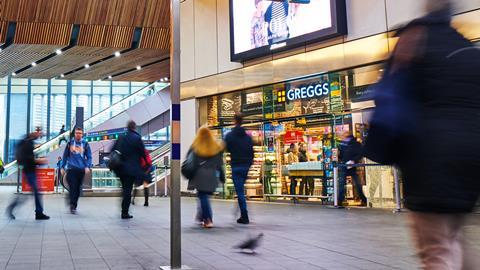

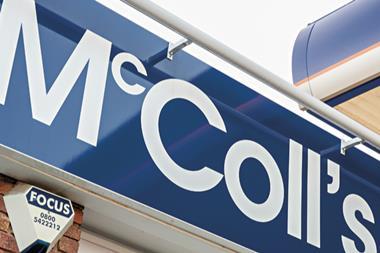
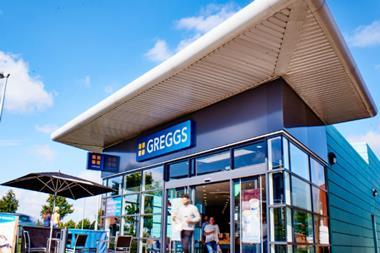
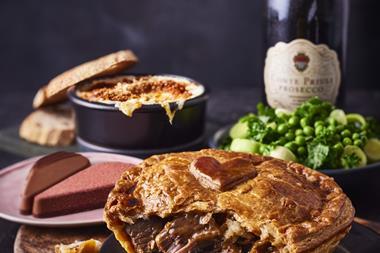
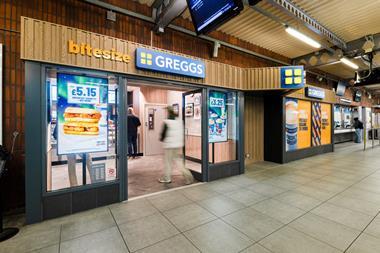
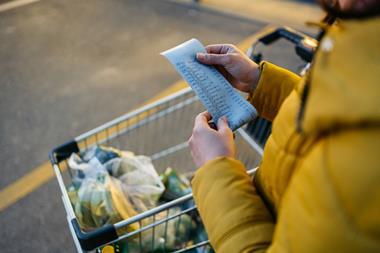






No comments yet